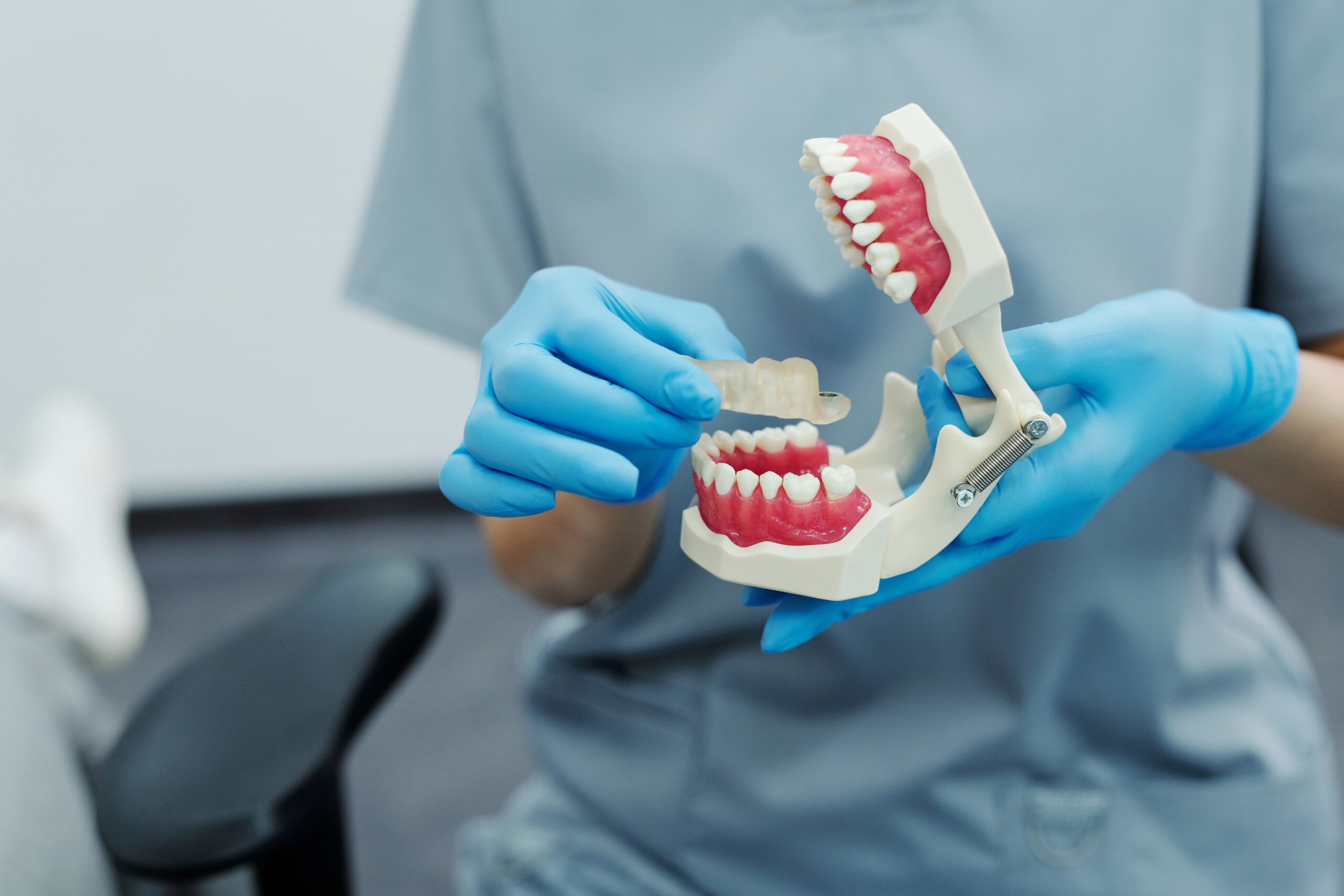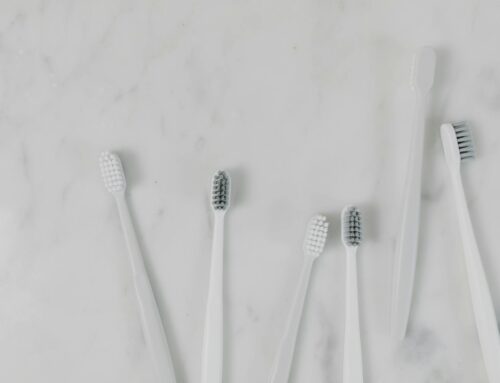Recent research has looked into the impact that allergies to penicillin has on the success of dental implants. Interestingly, for those who are prescribed the antibiotic amoxicillin, dental implants are more likely to be successful. For those who are prescribed other antibiotics, dental implants are more likely to fail. This research is important, and can aid the aftercare process for those receiving dental implants.
Dental implants are a very popular oral health treatment. Implants are artificial teeth that appear natural, are highly effective, and usually long-lasting.
However, dental implants are not always successful. When there is a problem, dentists and other medical professionals will normally prescribe an antibiotic to ward off the threat of infection. But different antibiotics have shown varying levels of effectiveness.
The topic is complicated by the fact that many people claim to be allergic to penicillin. Now, research has looked into how antibiotics react when used to combat dental implant problems.
Background
Dental implants provide a long-term solution to replace missing or damaged teeth. They involve an implant being surgically placed in the jawbone.
Over a period of a few months, the jawbone fuses to the implant. Therefore, the intention is for the implant to be perfectly integrated into the mouth.
However, studies show that around 5-10% of implants fail [1]. This happens when the jawbone does not fuse to the implant. Typical reasons for this may include infections, trauma to the tooth or smoking [1].
To reduce the chances of infection, patients are often prescribed an antibiotic. These are a class of medicines that are used to treat and prevent some infections [2].
The go-to antibiotic in this case is normally amoxicillin, which is part of the penicillin family of antibiotics. However, many people claim to have a penicillin allergy, which renders amoxicillin unusable. If this is the case, then a different antibiotic will be prescribed.
An issue is however that up to 90% of people who claim to have a penicillin allergy are not truly allergic to it once they are properly tested [3].
The Research
The research was conducted by New York University’s College of Dentistry. Their findings were then published in the Clinical Implant Dentistry and Related Research journal [4].
This research sought to see the effectiveness of a range of different antibiotics for treating dental implant failure. This is especially relevant, given the amount of people that claim to not be able to take amoxicillin.
To do this, the authors reviewed the charts of patients who had received dental implants. They then saw which antibiotic was prescribed, and whether or not the dental implant was deemed a success or failure [4].
There were 838 patients in the study. 434 claimed to have a penicillin allergy, meaning they were unable to be prescribed amoxicillin. The remaining 404 were given a different antibiotic. These were either clindamycin, azithromycin, ciprofloxacin, or metronidazole [4].
As expected, amoxicillin proved to be the most effective antibiotic. When treated with amoxicillin, just 8.4% of implants failed [4]. Therefore, this shows amoxicillin is very effective for dental implant problems.
However, those that reported a penicillin allergy had a failure rate of 17.1% – a much higher rate [4]. The antibiotics with the highest failure rate were azithromycin at 30.8%, and clindamycin at 19.9% [4]. Therefore, this suggested these antibiotics had very limited effectiveness.
Moreover, the researchers also found that those who claimed to have a penicillin allergy were likelier to experience earlier failure of their dental implants when compared to those without the allergy [4].
The researchers admitted there was little scientific explanation for why antibiotics other than amoxicillin were ineffective. They suggested a key factor is a seemingly negative reaction to the materials used in implants [4].
What this means
The results of this study show that amoxicillin should certainly be used in cases where dental implants fail. Moreover, it is therefore necessary that many people should get a test to see if they are actually allergic to penicillin. This is especially true for those considering dental implants.
For those that are truly allergic to penicillin, there are alternatives available. But as shown in this study, they are not as effective as amoxicillin. This can help to guide dental professionals when prescribing post-operation medicine.
Zahra Bagheri of the NYU College of Dentistry, was the lead author of the research [5]. Bagheri commented on the findings by saying that “if a patient’s actual allergy status is determined prior to oral surgery, we may be able to achieve more favorable outcomes by prescribing amoxicillin to those without a true allergy” [5].
Bagheri also urged citizens to find out if they actually are allergic to penicillin. She said “this study highlights the importance of patients transmitting accurate, updated systemic health details to their dental care teams” [5]. This can boost treatment outcomes.
So while most dental implants do succeed and turn out to be an excellent treatment for many people, there are occasions when they fail. This study helps us all to know which antibiotics are most effective for when this happens.
Thinking points…
1) Are you considering dental implants? They can be an excellent treatment for many people. Hopefully your implants would not cause complications. However, as this study has shown, it is possible. Therefore, consider checking to see if you a penicillin allergy, in case of complications.
2) In general, one of the best ways of avoiding needing implants is to have excellent oral hygiene. This includes brushing our teeth at least twice a day, flossing, and attending regular dental check-ups. A check-up will help a dentist to determine your overall oral health. The earlier that problems are treated, the more chance of success. We highly recommend booking an appointment soon!
What we offer at Taradale Dental
Taradale Dental is a dental clinic based in Calgary, Alberta, Canada. We provide our patients with a warm welcome, a comfortable experience and advice whenever needed.
We recommend that our patients attend our Calgary-based dental clinic twice a year for a regular dental check-up. When problems are detected, we have many treatments available. For instance, these include cavity fillings and root canals.
Here at Taradale Dental, we also have some cosmetic treatments available! These include dental implants, tooth whitening and Invisalign™! These treatments can have a positive impact on your appearance, confidence, and self-esteem.
Importantly, we recommend brushing your teeth at least twice a day and flossing regularly. Moreover, eating healthily and trying to avoid sugary foods and drink is helpful.
In addition, all of our services at our Calgary dental clinic Taradale Dental are in line with the Alberta Dental Fee Guide.
We would love you to visit our Taradale Dental clinic in Calgary! You can find out more about us by visiting our website https://taradaledental.ca.
References
[1] Frank, C. (2018). What to Know About Dental Implant Complications and Failure. Available: https://www.healthline.com/health/dental-implant-problems. Last accessed: 8th April 2022.
[2] National Health Service. (2019). Antibiotics. Available: https://www.nhs.uk/conditions/antibiotics/. Last accessed: 8th April 2022.
[3] Centers for Disease Control. (2016). Is it Really a Penicillin Allergy?. Available: https://www.cdc.gov/antibiotic-use/community/pdfs/penicillin-factsheet.pdf. Last accessed: 8th April 2022.
[4] Zahra, B., Barrese, N., Rubinshtein, G., Zahedi, D., Janal, M. N., & Froum, S. (2022). Dental implant failure rates in patients with self-reported allergy to penicillin. Clunical Implant Dentistry and Related Research. (Pre-publication issue). DOI: https://doi.org/10.1111/cid.13082.
[5] NYU College of Dentistry. (2022). Patients Reporting Penicillin Allergy Less Likely to Have Successful Dental Implants. Available: https://www.oralhealthgroup.com/news/patients-reporting-penicillin-allergy-less-likely-to-have-successful-dental-implants-1003965763/. Last accessed: 8th April 2022.




[…] Recent Research Has Looked Into the Impact That Allergies to Penicillin Has on the Success of Dental Implants. Click the Link to Know More! […]